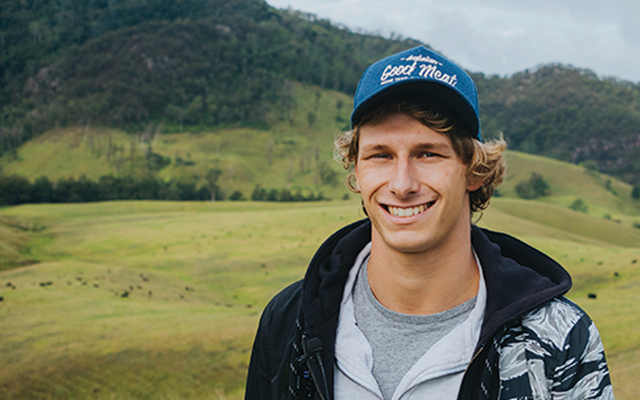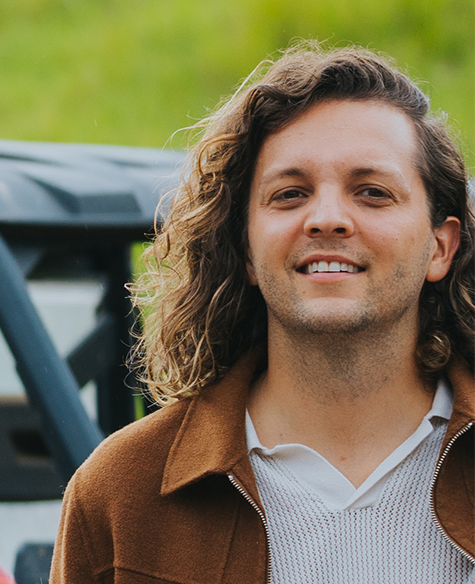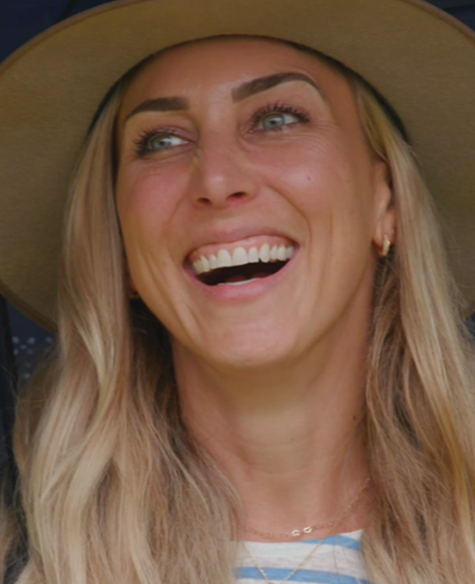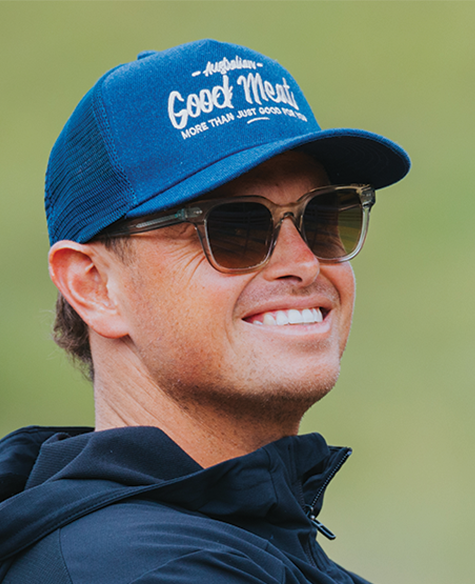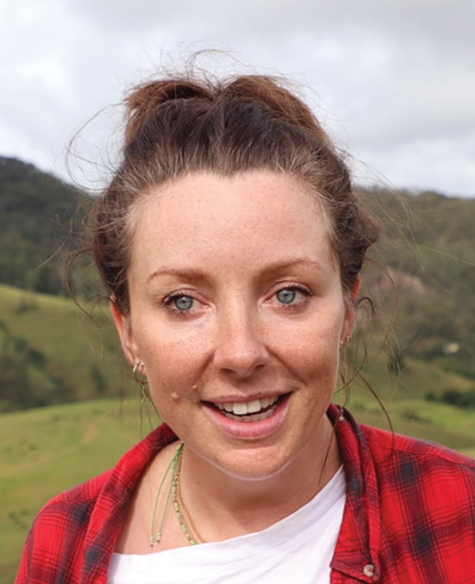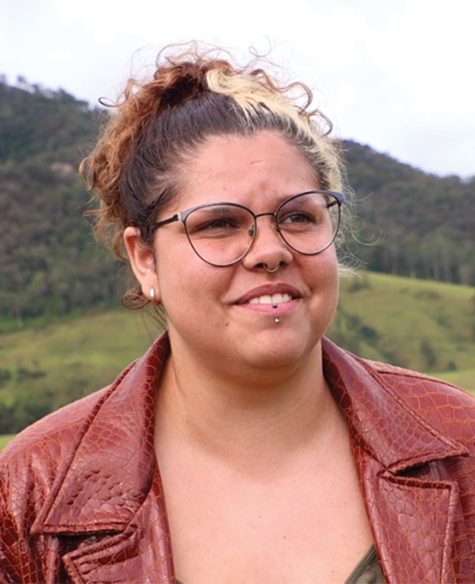Coco is one of the most important things in Olympic diver Sam Fricker’s life.
Coco is Sam’s dog. A loved family member.
That’s how Australia’s cattle farmers feel about their livestock too, as Sam learnt when he jumped in the deep end and took a trip to a big Aussie beef farm to find out how the animals are treated.
Much to Sam’s relief, the answer was…pretty well.
Animal welfare is important to the Commonwealth Games medalist who started his environmentally friendly Sam’s Straws business after seeing a green sea turtle with a plastic straw stuck in its nostril.
Just as Australia’s dog owners like Sam treat them as a member of the family, he discovered Australia’s farmers work hard to give their animals the best possible life too.
Healthy, contented animals are the key to successful, sustainable farms. Sam saw how farmers promote good animal health and welfare - from low-stress stock handling to keep them calm, to ensuring they have an optimal diet.
As an athlete, Sam understands the importance of the right nutrition. And in his high-pressure sport, his best performances come when he is calm and relaxed.
It’s the same approach he saw the Macka’s Black Angus team take at ‘Woko Station’, and it’s replicated on cattle and sheep farms around Australia.
At Queensland’s Smithfield Cattle Co and farms around the country, animal wellbeing is the number one priority, so livestock can live stress free, with shade, shelter, friends, and free from predators, harm and distress.
Of course, Australian farmers follow regulations and standards set by the government, animal welfare, environment and planning legislation too. And the red meat industry has created new programs and frameworks to support best practice in animal health and welfare.
But the heart of animal welfare is just that. A farmer’s heart. Farmers like Robert ‘Macka’ Mackenzie, who Sam discovered genuinely cares for all animals’ wellbeing.
“Just seeing how much the farmers care about the animals, that was quite a big impact for me.”
Man’s best friend? Coco might have some competition.
Beef farmers go for gold - carbon neutral by 2030
What do an Olympic diver and a beef farmer have in common? More than you might think.
Sam Fricker knows what it takes to get to the Olympics. He’s done it. It meant setting goals and striving to achieve them. Staying committed. And always looking for ways to be better. Do better.
That’s exactly what Sam found Aussie beef farmers doing when he travelled to ‘Woko Station’ in NSW to learn about sustainability in the red meat industry.
They were goal setting. Striving. And working to be better too.
While Sam has his sights set on Paris 2024, Aussie beef farmers have a different year in mind. 2030. That’s when the Australian red meat and livestock industry aims to be carbon neutral by.
Sam was surprised - and impressed - to find that the farmers are, in his words, “legit taking back some of the carbon they’re putting out” and storing it in their own land.
Helping take the industry move towards CN30.
“I feel like the red meat industry really are doing everything they can. It seems like one of the most sustainable industries out there.”
Sam…we agree.


